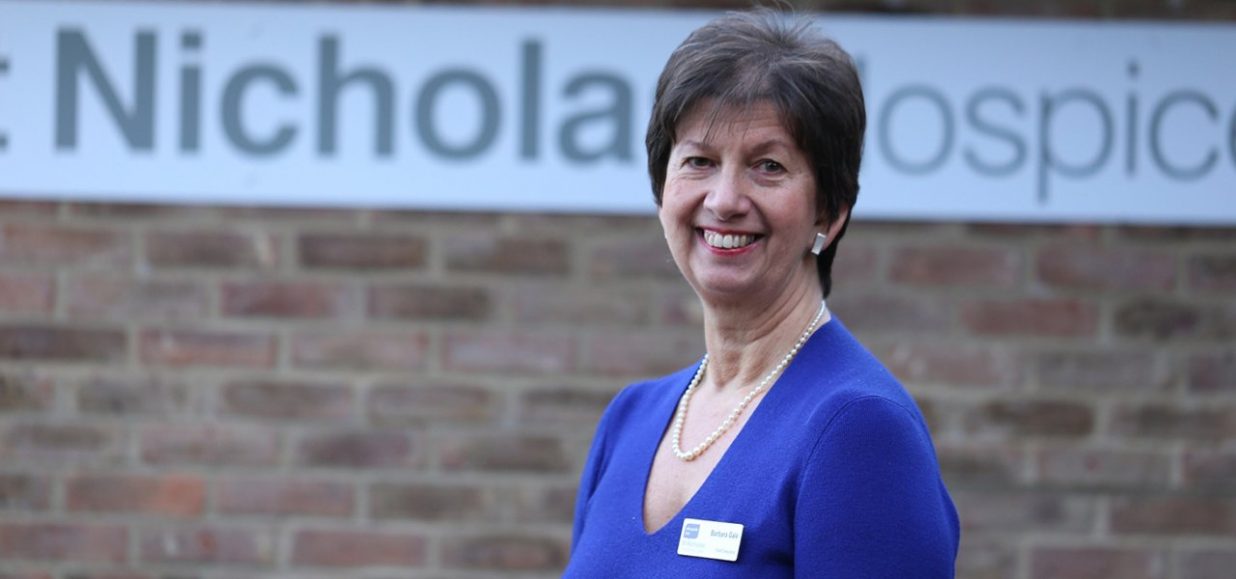Call our 24/7 advice line for health care professionals and families if you need support with symptom management and end of life care - 01284 766133.
Creating Compassionate Communities Building Death Literacy Conference
I was delighted to attend this conference organised by the Groundswell Project alongside attendees from a variety of backgrounds: from funeral directors, those working in care homes, in primary care, adult and children’s palliative and hospice care, as well as volunteers, artists, service designers, death doulas and digital experts, to name but a few.
Death Literacy can be described as: “the practical know-how needed to plan well for end of life. This includes knowledge, skills, and being able to take action. Getting involved in end of life care and having conversations can help build our death literacy”.
I spoke about my research with hospice community volunteers which shows how constraining a rigid hospice system can be on volunteers, at times promoting dependence on hospice staff, rather than resilience. Volunteers interviewed for my research felt that many rules did not fit with their experiences in the community and felt they could be trusted to make decisions and use theri common sense. Many in the audience, when listening to my findings, described how organisations seemed fearful of litigation which contributed to tight rules and boundaries around volunteering. A trend, most felt had come to Australia from America. However, I was moved by a volunteer who came to shake my hand and thank me for highlighting issues that she struggled with every day.
There was an overarching theme that was about listening to what people said and was important to them when considering developing support and services and not assuming we know what is needed. Ideas which connect to the work of Cormac Russell and Asset Based Community Development.
I was moved, as many of us were, when listening to the work of the 10k Project which explores if one could transform a residential aged care home from a place of care, into a hub, where relationships and inter-generational learning thrive as part of the local community. The team asked residents what was important to them, people talked about safety, comfort and good care. It was as if their lives had diminished and they had lost who they were as people. It needed a question about what made them feel special to draw out things that related to who they were and what really mattered.
The team heard about themes of loneliness, loss and resignation. People felt imprisoned, unable to go out without ‘an escort’. This loss of freedom contributed to a sense of uselessness. One man told how he had to miss watching football because staff wanted to give him a bath. We need to see ‘doing to’ people as violence, and community development without engagement could also be seen as violence and abuse of power.
These themes showed how people in homes had lost their agency (personal control). We were reminded that residents are not just spectators or passive recipients; they need to be active contributors. The team reminded us of the writings of Atul Gawande and how we as a society are failing people in their older years, the team suggested that the first step in care homes must be to create a space for residents to build and reignite their agency. I know we have heard about nursery and school children going into care homes, but here speakers talked instead of residents taking on roles in schools, helping with music, reading etc.
I reflected that hospices’ influence on care homes often focuses on staff – their training and awareness and use of advance care plans. We need to speak to the residents of care homes to appreciate if they are experiencing loneliness, loss and resignation? Completing advance care plans may tick good practice guidelines – but is it want residents really want to help make their life more worthwhile?
Debbie Horsfall’s presentation about a survey using Death Literacy Index, challenged our beliefs that people do not talk about death and their findings from a recent nationwide survey perhaps show that more people are involved with caring, death, dying and bereavement than we first thought. For example 63% of people had sat with someone who was dying; 90% had provided emotional support to a carer and 78% have given bereavement support. However, few people were connected to hospice of palliative care, with only 13% had worked or volunteered at with people at end of life.
Elham Day gave a very powerful presentation about his work in Hummingbird House – the only children’s hospice in Queensland. I was struck by how Elham and his team had enabled families to create very personal rituals, funerals and tributes to their children. That included the days after the death, where the child was still part of creating memories.
I wondered how many families would like to be part of something like this when an adult dies. How many cooling mats are there available if you want to keep your loved one at home, rather than go to an funeral home? But how many of us know that is even possible? When do we ask? When do we tell? Elham reminded us that as professionals we should be more proactive in giving guidance as most families have never been in this situation before.
This conference made me realise that if we want a death literate compassionate community we need to be more open to learning and truly listening to each other, and especially people in our communities. However, we need to be careful that the expertise some of us have developed as specialists in palliative care does not hold us back from working with our communities and that we do not let rules and regulations get in the way of taking risks and trying new ways of working.
For more details look on Twitter #ComCom2018 and my tweets @barbaragaleceo.

